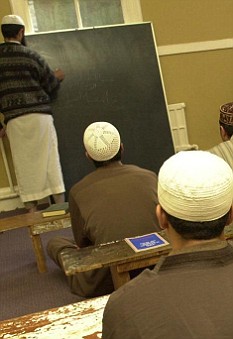|
Wednesday, 26 May 2010 15:34 |
|
 By Tehmina Kazi By Tehmina Kazi
British Muslims for Secular Democracy released a guidance booklet for schools at our “Free Muslims: Autonomy and Creativity” conference this year. The aim was to guide teachers through the maze of religious and cultural issues affecting Muslim pupils (which, admittedly, also leave many Muslims feeling confused at the best of times). We have addressed subjects from forced marriages to sex education, from school dress codes to making allowances for Friday prayers.
For too long, British Muslims have experienced disengagement rather than national belonging – partly because of Islamophobia, partly because of self-exclusion. Future generations deserve better, and we must equip ourselves with the skills and attributes to thrive in an increasingly multi-cultural and multi-faith society. The challenge is how we can live with each other whilst upholding respect and being respected at the same time, building trust and good relations.
BMSD thought it was important to emphasise the fact that humans have more in common than differences (the latter are often assumed and sometimes exaggerated). Practices and beliefs that define groups and individuals are precious, but they cannot become the sole basis for policies and politics. CULTURE IS DYNAMIC, not static and set in stone forever.
Schools are there for the betterment of our children, the citizens of tomorrow. It is imperative that they are raised as well-informed individuals with open minds. The Islamic faith sets clear guidelines for comportment within the familial unit and there is also clear guidance on the need to adapt to the environment and society.
At an NUT conference in 2008, a resolution was passed declaring that state schools have the flexibility and the adaptability to accommodate the faith-based needs of parents and children. In state schools, young people from all cultures – who hold religious and non-religious beliefs – come together, representing the environment these young people will have to face in real life. It is important that they not only understand the diversity that exists, but also respect that diversity. Conversely, faith schools present children with markedly fewer opportunities to bond with children from different backgrounds.
Some parents see the school as being culpable for their child’s behaviour and refuse to recognise and acknowledge their own role and specific responsibility. No school (faith or state) can ever be a substitute for the role parents must play in instilling moral values into their child, such as honesty, fair play and a sense of care.
Working with the school to find solutions to problems and issues will foster a good relationship between families (the agents of primary socialisation) and the school (the agent of secondary socialisation). Both must work in tandem and deliver to children a broad and thorough education, which embraces various facets of their identity, instead of solely focusing on religious beliefs. This holistic approach will lead to a positive environment in which the child can maximise his/her potential and excel in all areas of life.
Tehmina Kazi is director of British Muslims for Secular Democracy
Published on Wednesday 26th May 2010 |
|
Last Updated on Thursday, 27 May 2010 13:46 |





 By Tehmina Kazi
By Tehmina Kazi